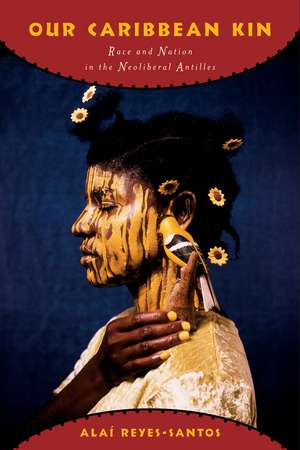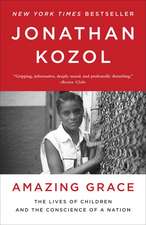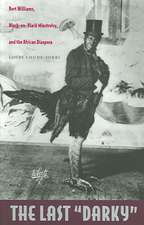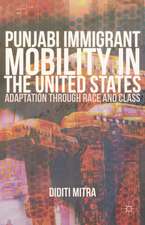Our Caribbean Kin: Race and Nation in the Neoliberal Antilles: Critical Caribbean Studies
Autor Alaí Reyes-Santosen Limba Engleză Paperback – 15 iun 2015
Beset by the forces of European colonialism, US imperialism, and neoliberalism, the people of the Antilles have had good reasons to band together politically and economically, yet not all Dominicans, Haitians, and Puerto Ricans have heeded the calls for collective action. So what has determined whether Antillean solidarity movements fail or succeed? In this comprehensive new study, Alaí Reyes-Santos argues that the crucial factor has been the extent to which Dominicans, Haitians, and Puerto Ricans imagine each other as kin.
Our Caribbean Kin considers three key moments in the region’s history: the nineteenth century, when the antillanismo movement sought to throw off the yoke of colonial occupation; the 1930s, at the height of the region’s struggles with US imperialism; and the past thirty years, as neoliberal economic and social policies have encroached upon the islands. At each moment, the book demonstrates, specific tropes of brotherhood, marriage, and lineage have been mobilized to construct political kinship among Antilleans, while racist and xenophobic discourses have made it difficult for them to imagine themselves as part of one big family.
Recognizing the wide array of contexts in which Antilleans learn to affirm or deny kinship, Reyes-Santos draws from a vast archive of media, including everything from canonical novels to political tracts, historical newspapers to online forums, sociological texts to local jokes. Along the way, she uncovers the conflicts, secrets, and internal hierarchies that characterize kin relations among Antilleans, but she also discovers how they have used notions of kinship to create cohesion across differences.
| Toate formatele și edițiile | Preț | Express |
|---|---|---|
| Paperback (1) | 311.45 lei 6-8 săpt. | |
| Rutgers University Press – 15 iun 2015 | 311.45 lei 6-8 săpt. | |
| Hardback (1) | 821.59 lei 6-8 săpt. | |
| Rutgers University Press – 15 iun 2015 | 821.59 lei 6-8 săpt. |
Din seria Critical Caribbean Studies
-
 Preț: 143.05 lei
Preț: 143.05 lei -
 Preț: 262.20 lei
Preț: 262.20 lei -
 Preț: 185.09 lei
Preț: 185.09 lei -
 Preț: 328.76 lei
Preț: 328.76 lei -
 Preț: 242.06 lei
Preț: 242.06 lei -
 Preț: 299.75 lei
Preț: 299.75 lei -
 Preț: 242.78 lei
Preț: 242.78 lei -
 Preț: 256.16 lei
Preț: 256.16 lei -
 Preț: 283.83 lei
Preț: 283.83 lei -
 Preț: 209.45 lei
Preț: 209.45 lei -
 Preț: 344.45 lei
Preț: 344.45 lei -
 Preț: 262.40 lei
Preț: 262.40 lei -
 Preț: 316.46 lei
Preț: 316.46 lei -
 Preț: 366.31 lei
Preț: 366.31 lei -
 Preț: 361.12 lei
Preț: 361.12 lei -
 Preț: 370.28 lei
Preț: 370.28 lei -
 Preț: 362.28 lei
Preț: 362.28 lei - 23%
 Preț: 778.68 lei
Preț: 778.68 lei -
 Preț: 177.59 lei
Preț: 177.59 lei -
 Preț: 359.13 lei
Preț: 359.13 lei - 23%
 Preț: 779.75 lei
Preț: 779.75 lei -
 Preț: 249.51 lei
Preț: 249.51 lei -
 Preț: 216.54 lei
Preț: 216.54 lei - 10%
 Preț: 910.98 lei
Preț: 910.98 lei - 10%
 Preț: 910.98 lei
Preț: 910.98 lei - 10%
 Preț: 910.98 lei
Preț: 910.98 lei -
 Preț: 267.04 lei
Preț: 267.04 lei -
 Preț: 360.09 lei
Preț: 360.09 lei -
 Preț: 324.53 lei
Preț: 324.53 lei - 10%
 Preț: 910.98 lei
Preț: 910.98 lei -
 Preț: 359.04 lei
Preț: 359.04 lei - 51%
 Preț: 498.27 lei
Preț: 498.27 lei -
 Preț: 405.13 lei
Preț: 405.13 lei
Preț: 311.45 lei
Nou
Puncte Express: 467
Preț estimativ în valută:
59.62€ • 61.46$ • 50.27£
59.62€ • 61.46$ • 50.27£
Carte tipărită la comandă
Livrare economică 27 februarie-13 martie
Preluare comenzi: 021 569.72.76
Specificații
ISBN-13: 9780813571997
ISBN-10: 0813571995
Pagini: 244
Ilustrații: 2 illustrations
Dimensiuni: 152 x 229 x 15 mm
Greutate: 0.34 kg
Ediția:None
Editura: Rutgers University Press
Colecția Rutgers University Press
Seria Critical Caribbean Studies
ISBN-10: 0813571995
Pagini: 244
Ilustrații: 2 illustrations
Dimensiuni: 152 x 229 x 15 mm
Greutate: 0.34 kg
Ediția:None
Editura: Rutgers University Press
Colecția Rutgers University Press
Seria Critical Caribbean Studies
Notă biografică
ALAÍ REYES-SANTOS is an assistant professor of ethnic studies at the University of Oregon. She is the former codirector of the journal Revista Estudios Sociales, published by Centro Bonó in the Dominican Republic.
Cuprins
Contents
Preface
Introduction: Our Caribbean Kin
1 The Emancipated Sons: Nineteenth-Century Transcolonial Kinship
2 Narratives in the Antilles
3 Wife, Food, and a Bed of His Own: Marriage, Family, and Nationalist Kinship in the 1930s
4 Like Family: (Un)recognized Siblings and the Haitian-Dominican Family
5 Family Secrets: Brotherhood, Passing, and the Dominican–Puerto Rican Family
Coda: On Kinship and Solidarity
Notes
Bibliography
Index
Recenzii
"With breadth, depth, originality, and intellectual acumen, Reyes-Santos builds on her conceptualization of transcolonial and transnational kinship through a number of social and cultural examples to arrive at a more diversified approach in literary and cultural studies."
"Alaí Reyes-Santos's elegant work unites vernacular and elite voices to discuss nationalist thought in the Spanish-speaking Caribbean. Her insights help us claim our intellectual traditions in contemporary struggles for justice."
Featured on the weekly book list (http://bit.ly/1K5Phrs)
Descriere
Our Caribbean Kin explores the extent to which Dominicans, Haitians, and Puerto Ricans have imagined one another as part of the same big family, rallying against the forces of European colonialism, US imperialism, and neoliberalism. Drawing from a vast archive of texts, ranging from nineteenth-century political tracts to twenty-first-century online forums, Alaí Reyes-Santos considers both the benefits and the limits of these kinship tropes, uncovering the conflicts and internal hierarchies among Antilleans, while also discovering how they have created cohesion across differences.












